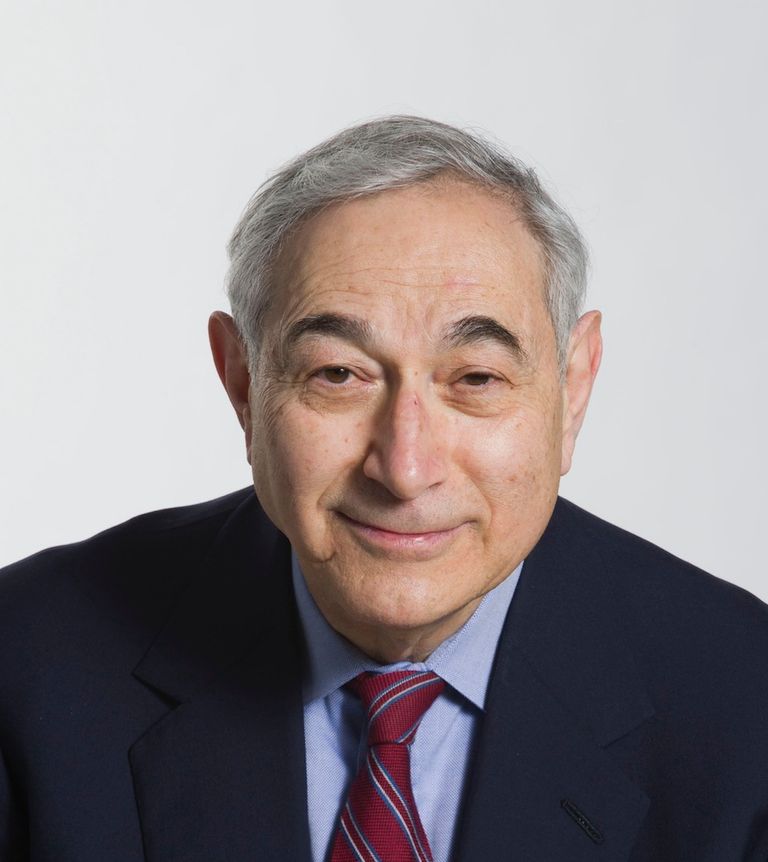
Neil S. Hecht
Professor of Law Emeritus
BA and Rabbinical Degree, Yeshiva University
JD, Yale University
JSD, Columbia University
Biography
After almost 50 years as a Professor of Law and 30 years as Founding Director of its Institute of Jewish Law, Neil Hecht retired and assumed Emeritus status. Over the years he wrote and edited a variety of treatises, monographs and teaching materials, totaling 36 volumes. Among these works areJewish Jurisprudence; Selected Topics in Jewish Law;Controversy and Dialogue in Halakhik Sources;Jewish Law in Context; The Jewish Law Annual; Windows onto Jewish Legal Culture; and An Introduction to the History and Sources of Jewish Law (Oxford University Press).
From 1985 to 1986, Professor Hecht was the Visiting Gruss Professor of Talmudic Civil Law at New York University School of Law. He has also served as co-director of the Joint Project in Jewish Legal Bioethics, a collaborative initiative of the Institute of Jewish Law and Boston University’s Schools of Medicine and Public Health. His many professional and public service activities include serving on the Board of Directors of the International Association of Jewish Lawyers and Jurists, as chair of the Jewish Law Section of the Association of American Law Schools (which he helped found in 1992) and as a member of the American Law Institute.
Professor Hecht has also researched and published in the areas of evidence and property. HisLong-Term Lease Planning and Draftingwas selected as a sourcebook for real estate transaction seminars by the American Law Institute/American Bar Association Committee on Continuing Education. He was honored by the Ashmolean Museum of Oxford University, which has displayed a plaque next to its Greek Metrological Relief in recognition of his published solution, based upon Jewish law, to the long-standing riddle surrounding the statue. In 2002, he was the recipient of the Silver Shingle Award for distinguished service to the School of Law, and in 2008 he won the Michael Melton Award for Excellence in Teaching. Yeshiva University awarded him its Centennial Rabbinic Award in 1986 and its Bernard Revel Memorial Award in 1981. Upon his retirement, the Faculty of Law of the Hebrew University of Jerusalem published a festschrift in his honor (The Jewish Law Annual, Volume 19) honoring him as “A Man of Vision And Action.”
- Profile Types
- Faculty and Professors Emeritus
Publications
Scroll left to right to view all publications
-
Hanina Ben-Menahem, Arye Edrei & Neil S. Hecht, Windows onto Jewish Legal Culture: Fourteen Exploratory Essays (2011)
Scholarly Commons -
Hanina Ben-Menahem, Neil S. Hecht & Shai Wosner, Controversy and Dialogue in the Jewish Tradition: A Reader (2005)
Scholarly Commons -
Tzvi Marx & Neil S. Hecht, Disability in Jewish Law (2001)
Scholarly Commons -
Itamar Warhaftig & Neil S. Hecht, Unjust Enrichment (1999)
Scholarly Commons -
Hanina Ben-Menahem & Neil S. Hecht, Authority, Process and Method: Studies in Jewish Law (1998)
Scholarly Commons -
Neil S. Hecht, An Introduction to the History and Sources of Jewish Law (1996)
Scholarly Commons -
Daniel B. Sinclair & Neil S. Hecht, Treating the Critically Ill (1994)
Scholarly Commons -
Daniel B. Sinclair & Neil S. Hecht, Abortion (1994)
Scholarly Commons -
Neil S. Hecht, Tribute to Professor Austin T. Stickells 73 Boston University Law Review (1993)
Scholarly Commons -
Shimshon Ettinger & Neil S. Hecht, Self-help in Jewish Law (1993)
Scholarly Commons -
Hanina Ben-Menahem & Neil S. Hecht, Law and Equity in Jewish Law (1993)
Scholarly Commons -
Hanina Ben-Menahem & Neil S. Hecht, Judicial Deviation in Talmudic Law: Governed by Men, Not by Rules (1991)
Scholarly Commons -
Neil S. Hecht, Foreword, in Judicial Deviation in Talmudic Law (1990)
Scholarly Commons -
Hanina Ben-Menahem & Neil S. Hecht, Legal Formalism in the Halakhah (1987)
Scholarly Commons -
Hanina Ben-Menahem & Neil S. Hecht, Exigency Authority of Courts (1987)
Scholarly Commons -
Hanina Ben-Menahem & Neil S. Hecht, A Modest Addendum to 'The Greek Metrological Relief in Oxford' 65 The Antiquaries Journal (1985)
Scholarly Commons -
Neil S. Hecht & Emanuel B. Quint, Exigency Jurisdiction Under Jewish Law 9 Dine Israel (1981)
Scholarly Commons -
Emanuel B. Quint & Neil S. Hecht, Jewish Jurisprudence: Its Sources and Modern Applications (1980)
Scholarly Commons -
Neil S. Hecht & William M. Pinzler, Rebutting Presumptions: Order Out of Chaos 58 Boston University Law Review (1978)
Scholarly Commons -
Neil S. Hecht, Long Term Lease Planning and Drafting (1974)
Scholarly Commons -
Neil S. Hecht, Variable Rental Provisions in Long Term Ground Leases 72 Columbia Law Review (1972)
Scholarly Commons -
Neil S. Hecht, From Seisin to Sit-In: Evolving Property Concepts 44 Boston University Law Review (1964)
Scholarly Commons -
Neil S. Hecht, State Taxation of Bankruptcy Liquidations: Federalism Misconceived 67 Yale Law Journal (1957)
Scholarly Commons
Stories from The Record
Activities & Engagements
No upcoming activities or engagements.
